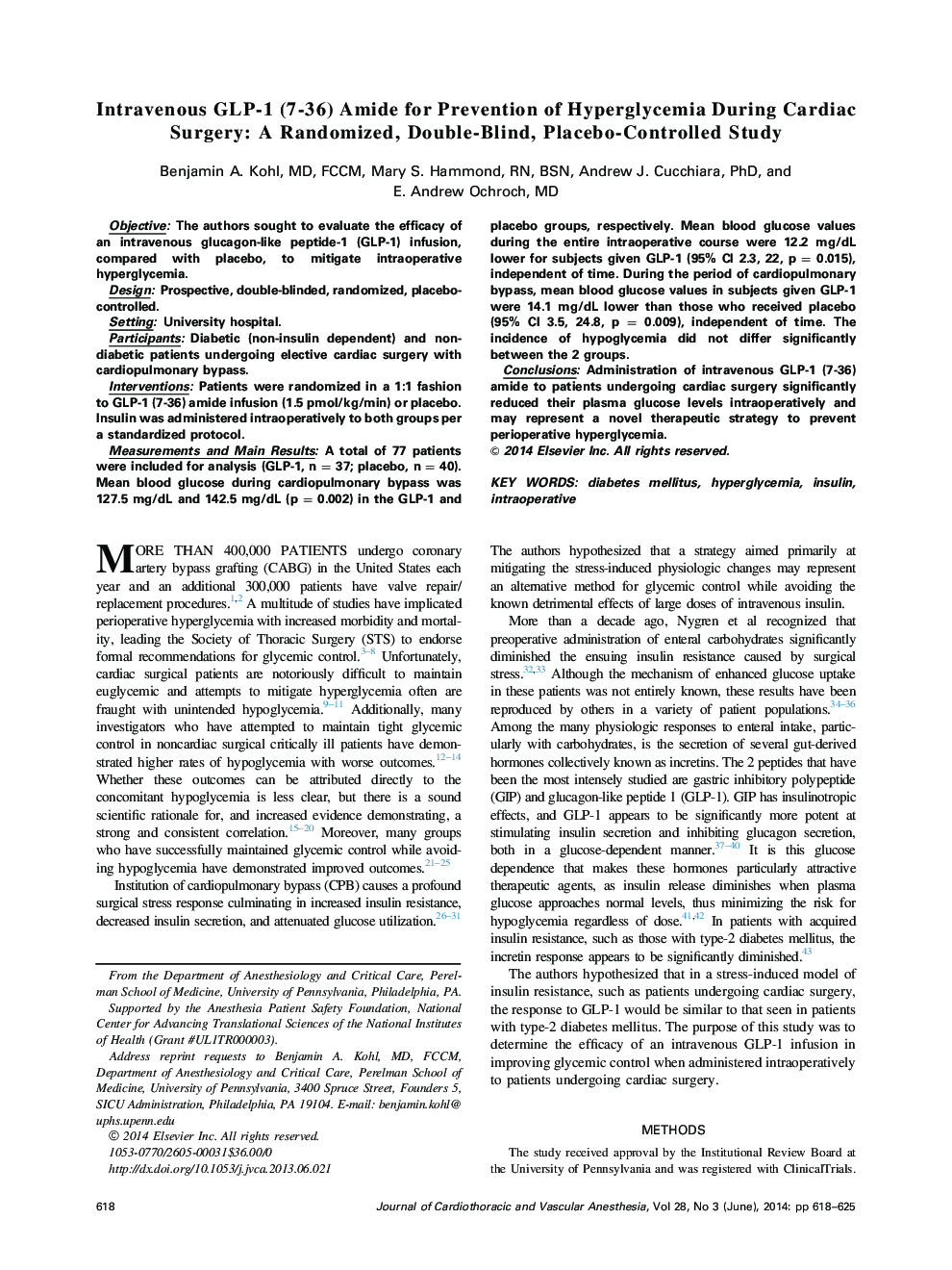| Article ID | Journal | Published Year | Pages | File Type |
|---|---|---|---|---|
| 2759179 | Journal of Cardiothoracic and Vascular Anesthesia | 2014 | 8 Pages |
ObjectiveThe authors sought to evaluate the efficacy of an intravenous glucagon-like peptide-1 (GLP-1) infusion, compared with placebo, to mitigate intraoperative hyperglycemia.DesignProspective, double-blinded, randomized, placebo-controlled.SettingUniversity hospital.ParticipantsDiabetic (non-insulin dependent) and non-diabetic patients undergoing elective cardiac surgery with cardiopulmonary bypass.InterventionsPatients were randomized in a 1:1 fashion to GLP-1 (7-36) amide infusion (1.5 pmol/kg/min) or placebo. Insulin was administered intraoperatively to both groups per a standardized protocol.Measurements and Main ResultsA total of 77 patients were included for analysis (GLP-1, n = 37; placebo, n = 40). Mean blood glucose during cardiopulmonary bypass was 127.5 mg/dL and 142.5 mg/dL (p = 0.002) in the GLP-1 and placebo groups, respectively. Mean blood glucose values during the entire intraoperative course were 12.2 mg/dL lower for subjects given GLP-1 (95% CI 2.3, 22, p = 0.015), independent of time. During the period of cardiopulmonary bypass, mean blood glucose values in subjects given GLP-1 were 14.1 mg/dL lower than those who received placebo (95% CI 3.5, 24.8, p = 0.009), independent of time. The incidence of hypoglycemia did not differ significantly between the 2 groups.ConclusionsAdministration of intravenous GLP-1 (7-36) amide to patients undergoing cardiac surgery significantly reduced their plasma glucose levels intraoperatively and may represent a novel therapeutic strategy to prevent perioperative hyperglycemia.
